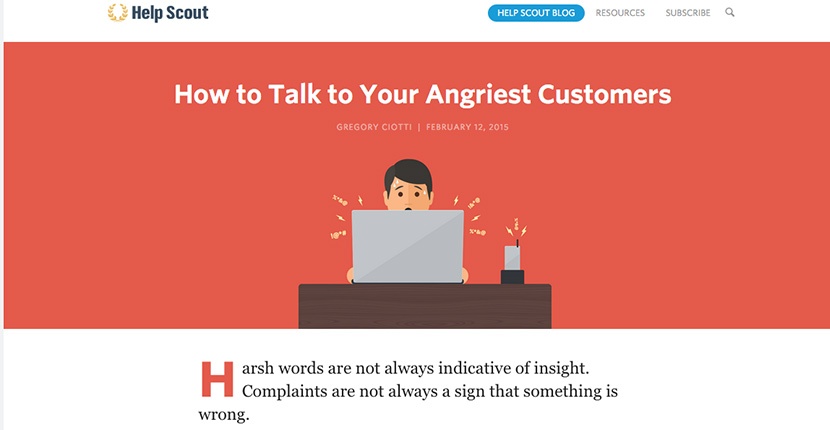Content marketing is all the rage these days. Everyone seems to be talking about it. Everyone wants to “build it into their marketing plan.”
But I’m finding more and more people that know about it, but they don’t know what to do with it. Or even what “it” is.
So, for the record, I consulted one of my favorite resources for marketing – Website Magazine. Aside from fantastic advice on everything marketing and online, Website magazine also offers several tips and articles related to content marketing as it can be a powerful strategy to increase your SEO and audience engagement.
What is content marketing?
According to content marketing institute, content marketing is a strategic marketing approach focused on creating and distributing valuable, relevant and consistent content to attract and retain a clearly defined audience – and, ultimately, to drive profitable customer action. Blogger Michael Hyatt created this ebook to promote products that he either loves, and/or is a reseller for:
In other words, you give something of high value to prompt an action, that in return results in a transaction. This isn’t necessarily a sale – it might be as easy as encouraging the individual to forward the email or infographic onto a friend.
Or share it on social media. In some cases, content marketing invites individuals to provide their email address in exchange for access to a particular e-book, workbook, or the hitchhiker’s guide to the galaxy (just kidding, but you get the idea).
What content marketing is NOT . . .
Before we get to the really great ideas for content marketing, let’s first clear up what content marketing is NOT:
- Content marketing is NOT simply asking your customers to download your sales brochure. That ends up being more you-focused than customer-focused. There’s not enough value in it for someone to stop, pay attention and engage.
- Content marketing is NOT scattered, poorly produced videos that provide quantity over quality. To make great video, it takes a strategy. I’ve seen many companies that have great videography, but they didn’t think about the story or the message beforehand. Yes, you CAN shoot great video with an iPhone, but the strategy comes first. Same goes for graphic design.
- Content marketing is NOT cheap. It takes a lot of hours, labor, and execution to produce results. If you think you’re just going to write a 1-page whitepaper and get your customers to go crazy, you’re fooling yourself.
- Content marketing is NOT a one-time solution. Success from content marketing comes from consistent, high-value content creation and strategic distribution. If the quality of your content begins to suffer, so will your results.
If you want an example of high quality content, you should definitely check out HelpScout.com andWPcurve.com. This post alone was one of my favorites:
These companies seriously rock it when it comes to content marketing. WPcurve.org even published a post this last week on the process they use to release their content. Genius!
Ideas for Content Creation for Your Startup
There are many ways to bring value to your audience. Instead of copying the same “10 ways to save money on [x]” types of posts, you need to develop fresh, new, unique and high value content that will compel someone to hit the forward or share button to send to a friend.
I always tell my clients that the goal is to have someone say, “Holy crap! This is awesome…you need to read/view/share this!” Yes, it’s called the holy crap goal. You might also call it the “everything is awesome” goal (see video below. Who doesn’t love the Lego movie?!)
When you’re looking for new ideas for your content marketing, consider these three gold mines:
1) Surveys.
We often think of surveys as the place that people go to tell us how unsatisfied they are with our company. And while that’s true, it’s an unfortunate cliché that limits our thinking.
I invite you to rethink the word survey. Replace the word “survey” with “customer wants.” If you took a customer out for coffee and actually talked to them about their business, you’d find a thousand things that they want (more of this, less of that) and inevitably, you’ll discover endless content opportunities.
To make this strategy work, simply send a short survey out to your audience, with a few key questions (not too long or you’ll lose people). Tell them that you’re working on some free resources that will help them better [insert your benefit here], and ask if they’d be willing to take a short survey to give you ideas for how your resource can be of great value to them. Make sure to promise a copy of the resource once you complete it.
I did this for a personal branding product I’m working on, and discovered that the main reason why people hate the term “personal branding” is because they feel like it means “personal bragging.” That is a solid headline to use for the creation of an e-book. Bingo!
2) Questions, questions, and more questions.
The teams at Google are smart – they assume when you search for content online, you search in the form of a question. Just watch what happens when you use Google Instant Search (you also find that people search for some bizarre things!). This goes to show that a question is a great way to develop content:

What are the frequently asked questions in your niche? These could range from very basic questions like, “How much does [x] product cost” to How do I compare two web developers when designing a new website?” To take this a step further, think about the questions that everyone is thinking, but no one has the guts to say out loud.
For example, a high-priced private university likely skirts around questions related to price. Or they try to “overcome objections” and point the individual in a different direction, such as telling the value story or the power of their brand. But what if you created an entire content campaign called, “Why our university is so expensive.”
And then you tackle it head on, and through the campaign the user actually discovers that when you take into account many factors at other universities, they’re actually on the same playing field for price. Interesting approach, and one that I love because it sparks debate – which is good fodder for sharing.
3) Show me.
There are still many companies who are afraid to show their customers what they are doing and what tools they used to do the work. In the modern world of givers gain, this doesn’t make sense. In the times that I’ve disclose the tools and strategies I’m using, clients and prospects have never said, “Ok, great. We don’t need you anymore.” In my experience, I ended up landing even more clients.
When you pull back the curtain and let your customers see what you’re doing, it further reinforces your level of market and industry expertise. Let’s compare it to a car mechanic.
He can show me what he’s doing, talk me through things, and even give me the wrench to tighten the bolt. But you won’t catch me fixing my transmission any time soon. I’ll leave that to the experts.


